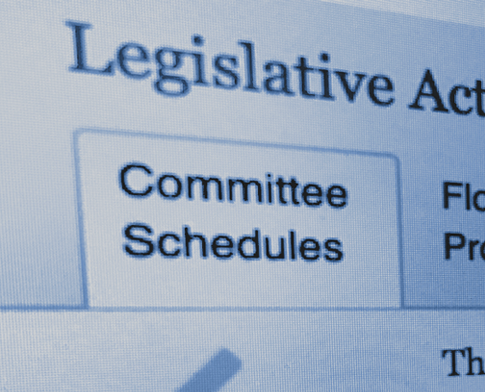Health Update (March 18)
| Trump Budget
This week, President Trump unveiled his Fiscal Year 2020 budget for the federal government. The president asked most executive departments and agencies to cut budgets by at least 5 percent. The budget reflects several health priorities such as implementing the VA MISSION Act, increased research funding for childhood cancers, funding to combat the opioid and drug addiction epidemic, and funding to defeat the HIV/AIDS epidemic. The budget includes proposals to reduce Medicare spending by over $800 billion over the next decade, with the biggest savings coming from cutting Graduate Medical Eduction by $200 billion and $67 billion in savings on policies to reduce prescription drug spending. The budget was swiftly rejected by most congressional Democrats, and many Republican lawmakers also voiced their concern at certain cuts the budget proposes. A full view of the budget, including a statement from President Trump, can be viewed here. A “budget in brief” look at the Department of Health and Human Services (HHS) budget in particular can be found here.
Health and Human Services Budget Testimony
In light of the release of the FY2020 budget, HHS Secretary Alex Azar took to Capitol Hill this week to discuss the HHS budget. Secretary Azar appeared before the House Energy and Commerce Health Subcommittee (his first appearance in the 116th Congress), the Senate Finance Committee, and the House Appropriations Labor-HHS-Education Subcommittee.
In the Energy and Commerce Health Subcommittee testimony, Democrats focused on the proposed cuts to Medicare and Medicaid, which total over $2 trillion ($1.5 trillion from Medicaid and $800 billion from Medicare over ten years). Republicans and Democrats shared concerns about funding levels for the National Institutes of Health and Centers for Disease Control. Several members of the committee were interested to find out how the HHS budget would support implementation of the 21st Century Cures Act and the SUPPORT for Patients and Communities Act. A full readout from the E&C hearing can be read here.
Similar discussions took place when Secretary Azar appeared before the Senate Finance Committee. Despite partisan disagreements, there was bipartisan support for the Family First Prevention Services Act, which reforms child welfare laws. Chairman Grassley (R-IA) and Ranking Member Wyden (D-OR) both encouraged the Secretary to expedite implementation of that law. There was significant discussion of drug prices and HHS’s efforts to address the issue. Secretary Azar asked the committee to support the Administration’s recent proposals on prescription drug rebates. Other areas of discussion included combating tobacco abuse, addressing the opioid crisis, and the Indian Health Service. A readout from the Finance Committee can be read here.
Drug Pricing
Health insurance provider UnitedHealthCare Group and pharmacy benefit manager OptumRx are launching a new program in 2020 that will offer point-of-sale rebates to customers. Effective January 1 of next year, “only new employer clients that incorporate point-of-sale discounts to consumers” will be supported, according to an announcement from UnitedHealthcare. This year, the insurer began a program that applies discounts on pharmacy refills or home deliveries for enrollees in a fully insured commercial group benefit plan. UnitedHealthcare estimates that the program from 2019 has already saved an average of $130 per prescription, and that the new program will save even more money.[1] However, as reported by Politico, UnitedHealthcare still opposes the HHS rebate rule for Part D because it could increase premiums by up to 25 percent.[2]
The Senate Finance Committee has invited executives from five pharmacy benefits managers to testify before the committee in April. In a press release this week, Chairman Grassley and Ranking Member Wyden announced that executives from Cigna, CVS Caremark, Humana Inc., OptumRx, and Prime Therapeutics were invited “to provide real information and discuss real solutions.” The hearing will now take place on Tuesday, April 9th, 2019. A link to the invitation letters from the Finance Committee can be found here.[3]
The problem of drug pricing legislation has attracted a bipartisan coalition of members in both the House and the Senate. Now that there is legislation in committee, however, there is partisan disagreement regarding solutions to the problem. This week, the House Energy and Commerce Committee met to advance several small drug pricing bills. Those efforts were met with resistance from leaders in the minority. Ranking Member Greg Walden said that Republicans “wished the process were more inclusive.” The most high-profile bill considered this week in committee was the CREATES Act, which has Republican supporters in the House and Senate. HHS Secretary Alex Azar also voiced his support for the legislation, and said “It’s kind of exciting…because we’re actually on the threshold of doing something.”[4] A companion bill to the CREATES Act is pending in the Senate.
References [1] Bruce Japsen. “UnitedHealth And OptumRx To Pass Drug Maker Rebates To More Clients.” Forbes, 12 Mar 2019. https://www.forbes.com/sites/brucejapsen/2019/03/12/unitedhealth-and-optumrx-to-pass-drug-maker-rebates-to-more-clients/#15ab7594ad93 [2] Sarah Karlin-Smith. “Optum will mandate point-of-sale drug rebates in new plans.” POLITICO, 12 Mar 2019. https://subscriber.politicopro.com/health-care/whiteboard/2019/03/optum-will-mandate-point-of-sale-drug-rebates-in-new-plans-2851727 [3] “Grassley, Wyden Invite 5 Pharmacy Benefit Managers to Drug Pricing Hearing.” Senate Committee on Finance, 12 Mar 2019. https://www.finance.senate.gov/chairmans-news/grassley-wyden-invite-5-pharmacy-benefit-managers-to-drug-pricing-hearing [4] Peter Sullivan. “Divisions emerge over House drug price bills.” The Hill, 13 Mar 2019. https://thehill.com/policy/healthcare/433975-divisions-emerge-over-house-drug-price-bills |
HOUSE.GOV
The Week Ahead
For the main events of the next week and more, go straight to the key events on the house.gov website.
SENATE.GOV
The Week Ahead
For the main events of the next week and more, go straight to the key events on the senate.gov website.


